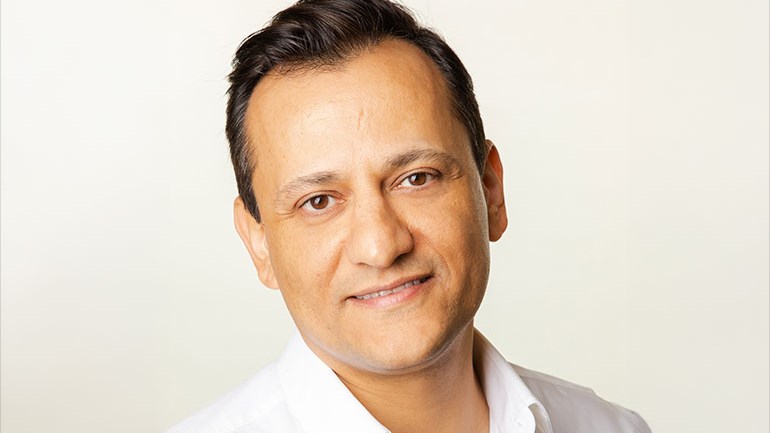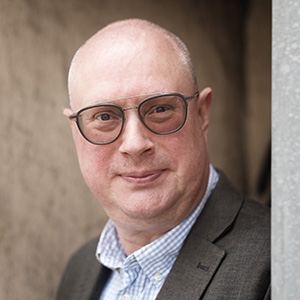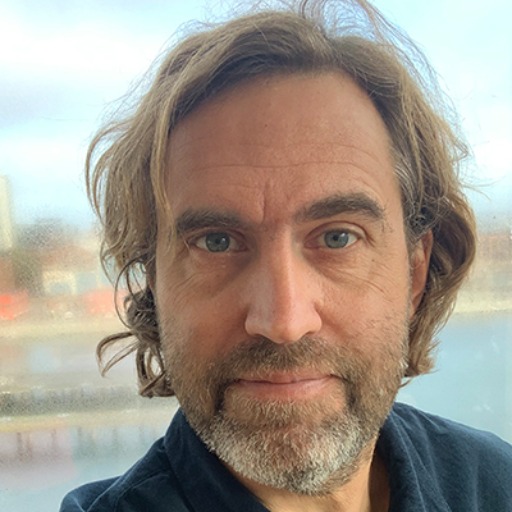Honorary doctor weaves together academia and industry

Michael Mokhberi has supported research at Malmö University by providing a development platform for doctoral students and undergraduates, enabling them to test and further develop data science methods and search technologies.
Michael Mokhberi, founder of the company Apptus, has been appointed honorary doctor at the Faculty of Technology and Society. Through his visionary leadership, he has been a catalyst in strengthening Malmö University's position as a hub for computer science research.
“His efforts have not only been of great importance to the faculty's academic progress, but also to the application of research results in concrete industrial solutions that benefit society as a whole,” says Bengt Nilsson, professor at the Department of Computer Science and Media Technology, who has collaborated with Mokhberi for many years.
Mokhberi has supported the faculty's research by providing an advanced development platform for doctoral students and undergraduates, who have been able to test and further develop data science methods and search technologies, particularly in e-commerce.
“Thanks to Michael, we have been able to work with a live platform and use “real” data sets to evaluate sometimes crazy ideas to see what works and whether our theories actually hold up in an application context,” says Nilsson, continuing:
“He takes a scientific approach to everything he does, which is not very common among business leaders and entrepreneurs. He also has a genuine interest in technology, not just as a tool for making money, but as a way to bring about social development. He often talks about the collaboration between academia and industry as a shared ecosystem with intertwined roots.”
How does it feel to have been awarded an honorary doctorate?
It's fantastic that my work has been recognised by such a prestigious university as Malmö University, which is home to many intelligent and talented people, some of whom taught me at one time or another. I actually got a little teary-eyed – it feels like confirmation that you've done something good.
You are passionate about linking academia and industry, why is that so important?
I have always wanted to work with the best researchers and stay up to date with the latest developments in the field. At the same time, I don't want to lose touch with industry. As a mathematician, I know that it's easy to get stuck in your own little world and end up not seeing or understanding how your research can be used. Even though you may be onto something brilliant. At the same time, industry doesn't always know what's possible to achieve. So, I see myself as a link between these worlds.
How did your relationship with Malmö University come about?
I have a long-standing collaboration with many researchers there, including Professor Bengt Nilsson, who was my teacher at Lund University. I have always brought my problems from industry to the research world; not only to Malmö University, but also to Lund University and the University of Copenhagen.
When reading about you and your business initiatives, it feels like you have always been one step ahead …
Well, yes and no. At the same time, I must say that I have been quite fortunate. Everyone in the industry had similar problems and insights. But few succeeded in starting a company that packaged a solution that suited the market. Ultimately, for me, it's about being customer-focussed. That what you've learned at university should be of use to someone. Science is great fun, but I get more excited when I know that it's going to be put out there and make a difference.
Michael Mokhberi's honorary doctorate lecture will take place on Wednesday, 15 October at 14.00 in the Orkanen restaurant.
Learn more about Michael Mokhberi
Michael Mokhberi came to Lund and Sweden from Iran at the age of 13. He is a mathematician by education and received his master's degree in computer science from Lund University in 1995. A thesis project at ABB led him into database technology, and he subsequently got a job as a consultant at the IT company Sigma, where he became a specialist in streamlining information systems. In 2000, he started the company Apptus, which focussed on search technology and search algorithms for specific target groups. A large part of the business came to focus on e-commerce and helping companies that wanted to sell their products online. Today, he is the CEO of Theca Systems.

